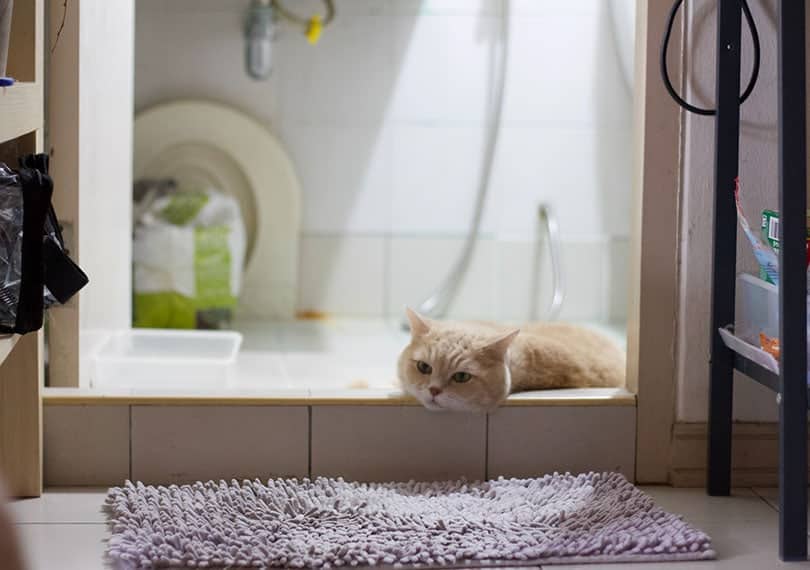The post Ask Dr. Paola – Monday January 20, 2025 by Dr. Paola Cuevas MVZ (Veterinarian) appeared first on Catster. Copying over entire articles infringes on copyright laws. You may not be aware of it, but all of these articles were assigned, contracted and paid for, so they aren't considered public domain. However, we appreciate that you like the article and would love it if you continued sharing just the first paragraph of an article, then linking out to the rest of the piece on Catster.com.
Welcome to our “Ask Dr. Paola” series, where every Monday we bring expert advice straight from Dr. Paola Cuevas (MVZ) to help our readers better understand their cat’s health and well-being.
Whether you’re a new pet parent or a seasoned cat lover, Dr. Paola is here to provide answers to your most pressing questions. From nutrition tips and preventive care to troubleshooting common behavioral issues, Dr. Paola is ready to offer insights that will keep your kitty happy, healthy, and feline fine. Stay tuned for expert guidance on a range of topics that matter most to you and your cat, so you can make informed decisions and provide the best possible care for your furry companion.
Have a question? Send it in here!

Help! My Cat Suffers from Allergies!
“Dear Dr. Paola,
My 6-year-old cat Nikki suffers from allergies. We don’t know the exact allergen, but a change in litter, food, and water has helped a little. She was badly traumatized as a kitten. Although she loves to be petted, any attempt to hold her to give medication brings on a panic response. I have tried everything I can think of—mixing with food, liquid treats, applying to her fur—nothing works. Are there any new subdural meds that her vet might apply?” – Linda
Hi Linda,
Taking care of a cat with a history of trauma and allergies can definitively be challenging. Working closely with a vet is essential to ensure the treatment plan addresses Nikki’s physical and emotional needs. Identifying allergy triggers is a key step, as it allows for targeted strategies to manage her signs effectively.
Treatment options may include antihistamines for mild cases or as part of a broader plan, corticosteroids to reduce inflammation and itching, and immunotherapy to desensitize her to specific allergens over time. Other options, like immunosuppressants such as Atopica (cyclosporine) or off-label use of Apoquel (oclacitinib), may also be considered, but this needs to be based on her specific case. Stress management is also important, as it can significantly impact her overall well-being since stress worsens allergies.
If you wish to learn more and explore the different available options for Nikki while minimizing stress and ensuring her comfort, we recommend speaking to one of our veterinarians in a one-on-one consult at PangoVet.com. PangoVet’s services can provide personalized advice and help you navigate the next steps, ensuring you and the veterinarian can work together to create a plan tailored to her specific needs.
Best wishes!
Dr. Paola

 Speak To a Vet Online From the Comfort of Your Couch!
Speak To a Vet Online From the Comfort of Your Couch!
If you need to speak with a vet but can’t get to one, head over to PangoVet. It’s an online service where you can talk to a vet online and get the personalized advice you need for your pet — all at an affordable price!


Help! My Cats Are Fart Machines!
“Dear Dr. Paola,
I have two 5-month-old kittens, Tux and Max, from the SPCA. They eat Purina pro plan kitten food wet 2 times a day in addition to their dry food. Are they supposed to be little raging fart machines? I pick one up and WAM, it’s so foul I have to cover my nose. Is this normal? Thank you.” – Mary
Hi Mary! It’s not uncommon for kittens to experience occasional gas, however persistent foul-smelling flatulence isn’t considered normal. There are several possible reasons for this. Dietary factors are often the primary cause. Highly processed foods may contain ingredients that some kittens find harder to digest, such as certain proteins, fillers, or additives. Swallowing air while eating, especially if they’re enthusiastic eaters, can also contribute to the problem. Additionally, kittens recently adopted from shelters may have an imbalance in their gut flora or could still be harboring intestinal parasites, even if they were treated for worms.
I recommend starting with a closer look at their diet. Transitioning to a species-appropriate, less processed food with fewer additives might help improve their digestion and reduce gas. You want to stay away from foods with “Meat By-Products” in the ingredient list as you can never know what they contain. Adding a high-quality, veterinary-recommended probiotic can support them in building a healthy gut microbiome. It’s also a good idea to confirm with your veterinarian that Tux and Max are free from intestinal parasites, as these can often cause gastrointestinal upset, including gas. If the issue persists or is accompanied by diarrhea, vomiting, or weight changes, a vet visit would be essential to rule out other underlying concerns.
Sincerely,
Dr. Paola


Help! My Cat Needs Weekly Baths!
“Dear Dr. Paola,
I have a foster cat, Catsby, with serious environmental and food allergies. Since he’s allergic to dust mites he gets a weekly bath with a hypoallergenic shampoo. (Plus HEPA filters, frequent bedding changes, steam mopping, etc.) Someone recommended monthly treatment with Revolution because it would help with any dust mites in the environment. Is that true? I hate to put chemicals on his skin unless they really would help significantly. Thanks, Dr. Paola”
– Kitty
Hi Kitty,
Thank you for your dedication to Catsby’s care while he finds a forever home! While Revolution (selamectin) is effective against many parasites like fleas, ear mites, and sarcoptic mange mites, it does not work on dust mites. Dust mites, such as Dermatophagoides farinae and Dermatophagoides pteronyssinus, live in the environment, feeding on household members’ skin flakes and other organic debris. Since they don’t live on or feed from pets, they’re not exposed to selamectin, which primarily targets parasites that live in and interact directly with treated animals.
I need to congratulate you, you’re already doing an excellent job managing Catsby’s dust mite allergies with HEPA filters, frequent bedding changes, steam mopping, and hypoallergenic baths. These steps are the most effective for controlling dust mites and minimizing allergens. Adding Revolution is unlikely to provide additional help with dust mites, so I understand your hesitation about applying chemicals unnecessarily. Please never take treatment
- Read last weeks questions here – Monday January 13, 2025
- Click here to submit a question
The post Ask Dr. Paola – Monday January 20, 2025 by Dr. Paola Cuevas MVZ (Veterinarian) appeared first on Catster. Copying over entire articles infringes on copyright laws. You may not be aware of it, but all of these articles were assigned, contracted and paid for, so they aren't considered public domain. However, we appreciate that you like the article and would love it if you continued sharing just the first paragraph of an article, then linking out to the rest of the piece on Catster.com.
from Catster https://ift.tt/jQHeo8L
